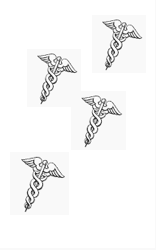By MIKE MAGEE, MD
As a Petersdorf Scholar-in-Residence at the Association of American Medical Colleges (AAMC) in 2002, Dr. Thomas S. Inui opened his mind and heart to try to understand whether and how professionalism could be taught to medical students and residents. His seminal piece, “A Flag In The Wind: Educating For Professionalism In Medicine”, seems written for today.
Nearly two decades ago, Inui keyed in on words. In our modern world of “fake news”, concrete actions carry far greater weight than words ever did, and the caring environments we are exposed to in training are “formative”—that is, they shape our future capacity to express trust, compassion, understanding and partnership.
Inui reflected on the varied definitions or lists of characteristics of professionalism that had been compiled by multiple organizations and experts, commenting:
“From
my own perspective, I have no reservations about accepting any, or all of the
foregoing articulations of various qualities, attitudes, and activities of the
physician as legitimate representations of important attributes for the
trustworthy professional. In fact, I find it difficult to choose one list over
others, since they each in turn seem to refer largely to the same general set
of admirable qualities. While we in medicine might see these as our lists of
the desirable attributes of professionalism in the physician, as the father of
an Eagle Scout I know that Boy Scout leaders use a very similar list to
describe the important qualities of scouts: ‘A Scout is trustworthy, loyal,
helpful, friendly, courteous, kind, obedient, cheerful, thrifty, brave, clean,
reverent (respecting everyone’s beliefs).’ I make this observation not to
descend into parody, but to make a point. These various descriptions are so
similar because when we examine the field of medicine as a profession, a field
of work in which the workers must be implicitly trustworthy, we end by
realizing and asserting that they must pursue their work as a virtuous
activity, a moral undertaking.”
Continue reading…














